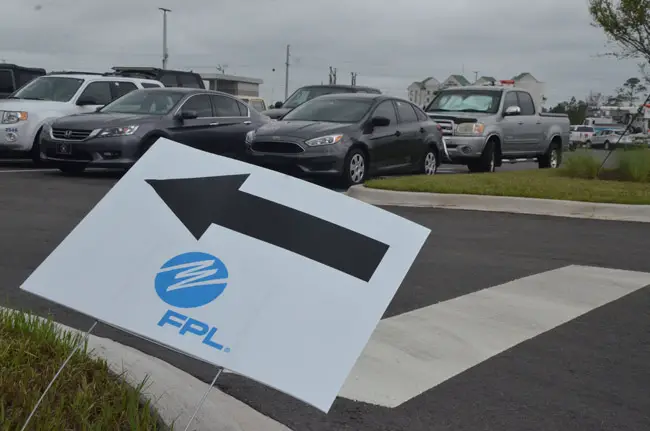
The Florida Public Service Commission (PSC) began the first phase of technical hearings in Tallahassee Monday for Florida Power & Light’s (FPL) proposed rate hike for its approximately 12 million customers.
FPL’s originally proposed base rate hike in February would have allowed it to collect $9.8 billion in revenue over the next four years — the highest in U.S. history. Since then, that has been negotiated down by approximately $2.9 billion — still far too high, energy advocates argue.
In her opening statement, Ali Wessling, attorney for the Office of Public Counsel (OPC), said the PSC’s statutory obligation is to regulate utilities such as FPL for the protection of the public welfare, which in this case means customers — not the corporation itself.
“Based on their filing in this case, they would have you believe that it is their welfare that we are here to protect,” she said, adding that over the course of the hearings, the OPC will provide expert testimony that many of FPL’s requests “would in fact cause harm to the welfare of FPL’s customers, and thus result in unfair, unjust, unreasonable, and thus unaffordable rates.”
 In its filing for a base rate increase with the PSC in February, the company requested a return on equity (ROE) of 11.9%, several points higher than the industry standard of 9.68%, with a third of the proposed first-year increase going strictly to profits, according to the OPC.
In its filing for a base rate increase with the PSC in February, the company requested a return on equity (ROE) of 11.9%, several points higher than the industry standard of 9.68%, with a third of the proposed first-year increase going strictly to profits, according to the OPC.
However, just days before FPL was scheduled to begin hearings before the PSC on that proposal in August, the investor-owned utility announced an agreement with a group of key stakeholder groups, including the Florida Retail Federation, Walmart, and the Southern Alliance for Clean Energy (SACE). The company reduced its proposed rate increase to $6.903 billion with a 10.95% ROE.
FPL has claimed that its latest version of a four-year plan would benefit customers through “rate stability and predictability.” That FPL is asking permission to raise its base rates in every year of the four-year plan contradicts that claim, Wessling said.
“Rate stability protects FPL’s welfare, not the customers with FPL’s welfare,” she said, adding that “bill stability” would certainly not be guaranteed in the four-year plan because of problems like storms and fuel prices.
The OPC says it intends to demonstrate that FPL’s rates should not increase by more than $35.2 million through 2027. It claims the proposed deal would increase FPL’s revenues by $6.753 billion through 2029, which it asserted in a filing with the PSC in August as “unconscionable.”
The first witness was FPL President CEO Armando Pimentel. He testified that the proposed base rate increase would result in an average increase on the total bill for “typical” 1,000-kWh residential customers of “roughly 2.5% a year.”
Along with the Office of Public Counsel, other organizations represented during the hearing include Floridians Against Increased Rates (FAIR), Florida Energy for Innovation Association, Federal Executive Agencies (FAE), Florida Rising, the League of United Latin American Citizens of Florida (LULAC), and Environmental Confederation of Southwest Florida.
–Mitch Perry, Florida Phoenix





























Deborah Coffey says
Executive salaries 2024: https://www.salary.com/research/executive-compensation/nextera-energy-inc-executive-salary